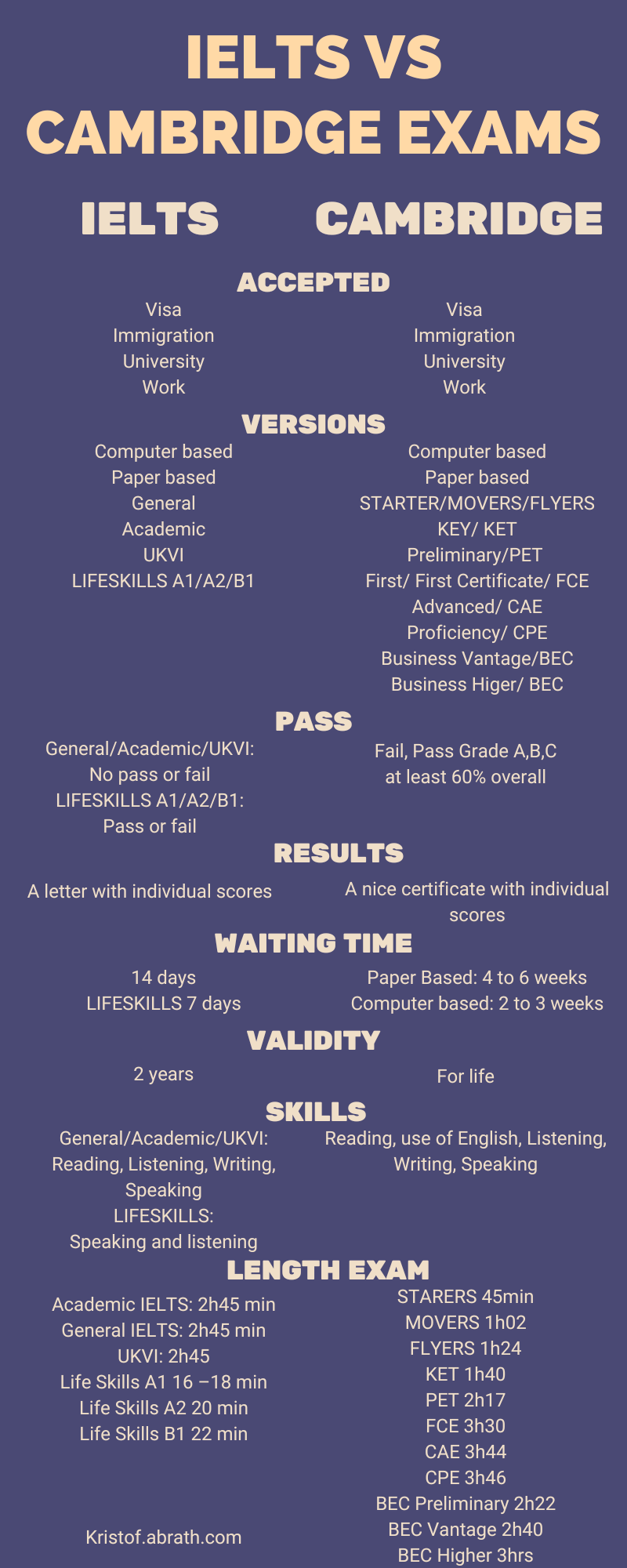English exams
The difference between IELTS & Cambridge exams

IELTS vs Cambridge exams
What’s the difference between Cambridge exams and IELTS?
IELTS
Cambridge
- Is used for immigration purposes or studying abroad (moving to a different country).
- Tests your reading, listening, speaking and writing skills.
- Tests your English level from beginner to proficiency (speaking like a native).
- The results are valid for 2 years.
- There is no pass or fail: You need a certain score to study abroad or immigrate. If you get that score your dream will come true, if not you will have to wait and try again. This means you need to contact the university you want to study or the immigration services of the country you want to immigrate to ask them which score you need.
- You get a letter stating your score on the different parts of the exam.
- You can do the exam on a computer or paper-based.
- IELTS is a product of Cambridge, the British Council and Idp
- More than 3 million people take IELTS each year
- Is usually used for personal achievement or to show your employer. Can sometimes be used for studying purposes or immigration.
- Tests your reading, listening, speaking, writing skills and your use of grammar and vocabulary
- Tests your English level at a certain level: First (FCE): B2 level, Advance (CAE): C1 level, Proficiency (CPE): C2 level.
- The results are valid for life.
- You can pass A: this means you are above the level of the exam. Pass B and C you are at the level of the exam. You can also fail and be below the level of the exam.
- You get a nice certificate stating which pass you have and the score on different parts of the exam.
- You can do the exam on a computer or paper-based.
- The Cambridge exams are a product of Cambridge
- More than 5 million people take the Cambridge exams each year

